Interview: Five Questions with Steve Howe of Yes
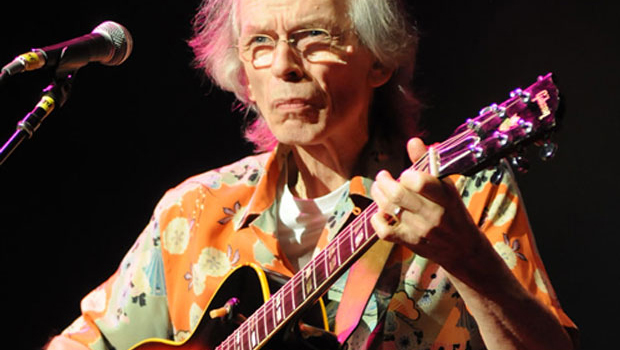
I recently made some hand-to-neck contact with Steve Howe's famous 1964 Gibson ES-175.
He brought it with him when he visited Guitar World for a photo shoot and a "Dear Guitar Hero" feature -- which you'll see soon in Guitar World magazine.
It's kind of a rare thing to touch Howe's ES-175, and it made my day, I've gotta say.
"No one gets to play it, though," he said. "Actually, I think Chuck Berry played it once in 1969, believe it or not."
The guitar -- the finish, at least -- looked brand new, and the neck was unusually slim and smooth; it has a C-shape, but the C has a very skinny belly, if you can picture that. Sorry -- I didn't have time to measure the radius.
"The 175 is a brilliant guitar," he said. "The parallelogram inlays are beautiful, the whole guitar is beautiful. I looked at mine for hours, if not days. I just stared at it. But a guitar is no good if nobody's played it. And when you play a guitar, you have to warm it up; it doesn't sound good straight away. You need at least 20 minutes. The guitar's sound changes. We don't know why, exactly, but as the wood moistens and you play it, it starts to sound like a guitar. Before that, it's a piece of wood with strings stretched across it. A new guitar is like a new baby. It doesn't know a lot, it needs feeding. And your feeding is playing."
After I asked him several questions from Guitar World readers, I had some time leftover to ask him these five questions:
Get The Pick Newsletter
All the latest guitar news, interviews, lessons, reviews, deals and more, direct to your inbox!
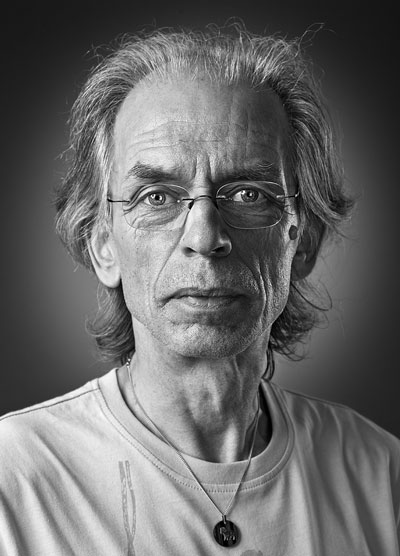
GUITAR WORLD: Finish this thought: Don't listen to Stevie Ray Vaughan; go back and listen to Albert King and Jimi Hendrix. Don't listen to Eric Clapton; listen to Buddy Guy and Freddie King. Don't listen to Steve Howe; listen to ...
Chet Atkins is first, Wes Montgomery is definitely second; I saw him when I was 16 in person, and if anybody knocked my socks off, it was him. But my other favorite is Albert Lee. In my opinion, he was up and running before me, and he's a brilliant, brilliant guitarist.
And I think I'd like to pick a classical guitarist, because they have been so important to me. I'll pick Julian Bream. One minute he's playing Rodrigo, and the next he's playing John Dowland on an another instrument [the lute]. That was wicked. That inspired me. That's why I play steel, that's why I move around guitars, just because other people showed me you can.
And Chet was the same thing, but he didn't change guitars, he just changed music. And that showed me you can keep the same guitar and change the music. That's why you need a good guitar. If you can get a good guitar, I mean good with a capital G, you can play any kind of music on it. Similar to my ES-175 in greatness is my 1956 Les Paul Custom Black Beauty. When I pull out that Les Paul, I can noodle around and suddenly I'm playing jazz, then I'm playing country-western, then I'm playing rock 'n' roll, all on the same guitar. That's a sign of a truly great guitar.
What do you find most challenging: performing with Yes, Asia, the Steve Howe Trio or solo?
The trio was the most challenging recently because it was trying to do something I hadn't really done before. I'd done all the other things. I'd done groups, I'd done solo. But the trio, that was pretty demanding, but that was from inside: Could I elevate myself to get in this pocket? It's been a vague, if not deceptive, pocket to get to.
Solo playing, mentally, that's one of the biggest challenges, because you want to look out and you've got an hour and a half, and there isn't anybody else there. And everything you do is self-supporting. It's the country picking, it's flamenco, it's classical. You're going to be making all the music. The reliance is not on your ability but on your mental focus to not lose the plot.
Bands are relatively easy. Why? Because there are other people. You're only taking a little bit of the load yourself. It can allow you to accelerate, you know, because of that. I do vocal harmonies with Yes, but none of it is difficult. I don't find singing at all difficult. I just stand, open my mouth and sing. I know what the notes are, I can do that.
But the challenge with Yes is that the band is so successful, so there's a lot to live up to in terms of what people think. "Wow, this is going to be great!" So there's a preconceived greatness that is a little bit rough. But I think also, because Yes is like my baby where I went through it with Jon and Chris and Bill, Yes has a very special place in my heart. It's a very special challenge there. It's not an easy one at the moment, when you've got a new album and a new member. That's pretty tricky.
Now what Asia does is totally different. I get on stage on with Asia, and I'm on the bandwagon. The band sucks you along, pulls you along -- just, "Hey, we do this together, right?"
Each of those four have different demands on me, and it's great having different demands. I don't like repetition.
You've been touring for years, and you've been pretty much everywhere. In fact, you just got back from Brazil. Are there still cities or places that get you excited, like "Oh, cool -- we're playing in Paris"?
Most certainly, but the wonderful danger about that is, that excitement is based on your last trip. It's always based on your last trip. Wow, we went to Denver, and I went in a store, found the best Indian jewelry I've ever seen in my life, spent $1,000, came out, loved it. Went to a great restaurant, the show was great, the venue was great, the hotel was great. Wow, wasn't it great? You go back the next time, you get a crap hotel, the gig smells, you're nowhere near food. So it's so conditional, so relative to the moment in time.
That's where it helps if you're living in the real world. You know, you're not disappointed. You're not surprised. So, yeah, there are places, but it rotates. I'd like to see some consistency in this world, but there isn't any. Ying, yang, good, bad, red white.
If your house were on fire -- and all your loved ones and pets were safe -- what single musical item and single non-musical item would you rescue?
The musical item would be the '64 Gibson ES-175, clearly. I'd hope to get my Martin 0018 as well, because that's equally important. There's no better acoustic guitar that I've ever had or that anybody will ever make than my 1953 0018. It's phenomenal. It shouldn't sound as good as it does. So I'd choose those, but the 175 would take precedence.
As for the non-musical item, it'd be a statue by Salvador Dali. It's called the "Surrealist Angel." There are a limited edition of them. I'm not sure how many; it might be 300, it might be 700. This was bought back in the '70s. It's a beautiful, gorgeous woman holding an invisible guitar with a triangular head with no heart. That's typical Dali. There's everything wrong and then right about it.
I recently posted a photo of you on Facebook, and a reader commented on the photo, saying that you look like Randy Rhoads. Thoughts?
Really? When I was young, like, in the '60s, people thought I looked like Mick Jagger, and I didn't know whether to take that as an insult or a compliment. Because he has one of those weird faces, where some people thought he looked weird, but the girls loved him. So I took it as a compliment at the time. [I hand him the July 2011 issue of GW with Rhoads on the cover] Is that Randy? I don't think I look anything like him. Maybe when my hair was that color, but I don't see any real comparison. But I'm flattered to be compared to anybody famous!
The new album by Yes, Fly From Here, came out July 12 on Frontiers Records. Be sure to check out my recent interview with Yes bassist Chris Squire. And look for more of my conversation with Steve Howe in an upcoming "Dear Guitar Hero" feature in Guitar World.

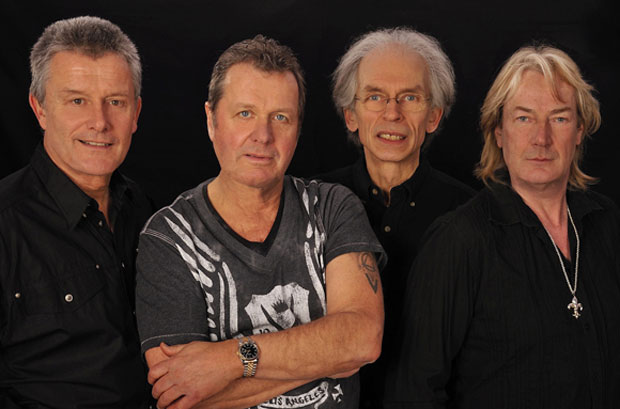
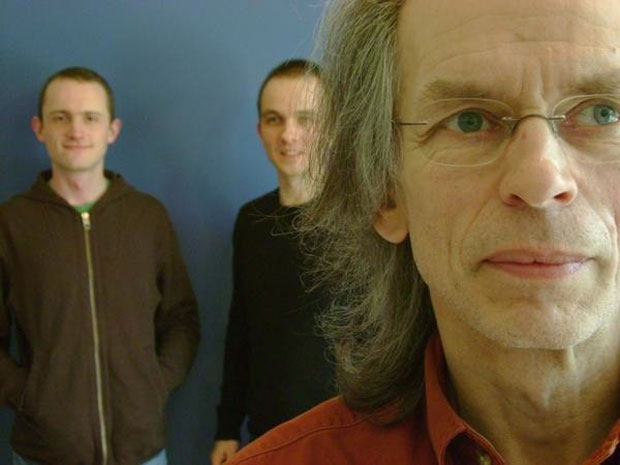
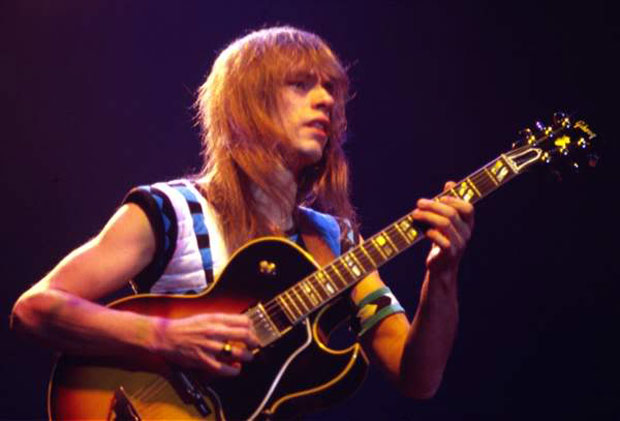
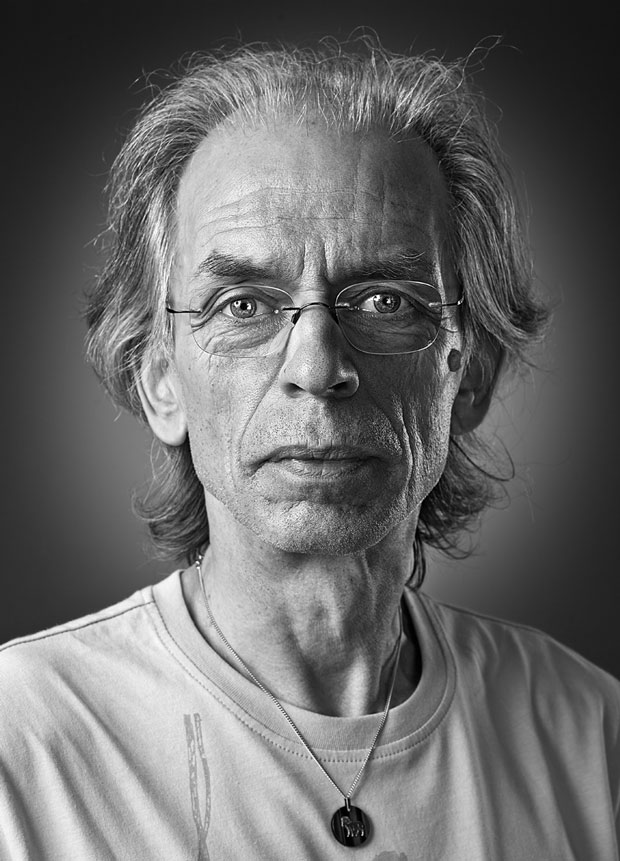

Damian is Editor-in-Chief of Guitar World magazine. In past lives, he was GW’s managing editor and online managing editor. He's written liner notes for major-label releases, including Stevie Ray Vaughan's 'The Complete Epic Recordings Collection' (Sony Legacy) and has interviewed everyone from Yngwie Malmsteen to Kevin Bacon (with a few memorable Eric Clapton chats thrown into the mix). Damian, a former member of Brooklyn's The Gas House Gorillas, was the sole guitarist in Mister Neutron, a trio that toured the U.S. and released three albums. He now plays in two NYC-area bands.
“I just learned them from the records. I don’t read tabs or anything, I don’t read music – I learned by ear”: How a teenage Muireann Bradley put a cover of Blind Blake’s Police Dog Blues on YouTube and became a standard bearer for country blues
“The Strat was about as ‘out’ as you could get. If you didn’t have a Floyd Rose, it was like, ‘what are you doing?’”: In the eye of the Superstrat hurricane, Yngwie Malmsteen stayed true to the original










